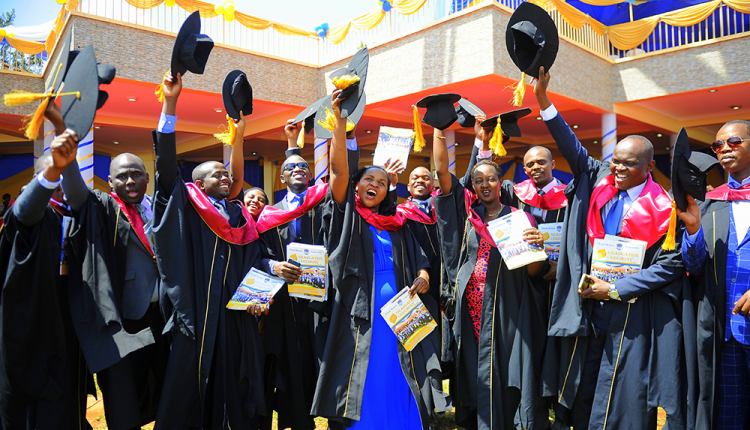It is a One–Year Mandatory Post-Graduate Diploma to Become a Teacher
All secondary school teachers will have to undergo a one-year mandatory post-graduate diploma in teaching before getting licensed to teach.
According to the new proposals that the Teachers Service Commission (TSC) have outlined, all university graduates aspiring to be teachers will have to undergo a post-graduate diploma in education.
Widespread reports indicate that the Commission has begun a transformative agenda that will see the framework for entry to enter in the teaching service revised.
“All the 8-4-4 and Competency-Based Curriculum (CBC) students must undertake first, Bachelor of Arts or Bachelor of Science courses for a period of three years majoring on the key subjects and, thereafter, undertake a Postgraduate Diploma in Education for a period of one year for teaching at junior and senior school and SNE (Special Needs Education),” stated the document.
The Director for Quality Assurance and Standards at the TSC Dr. Reuben Ntamburi prepared the document which points to a possible TSC plan to encourage specialization.
“Diploma in Education courses for CBC students at each level shall be three years after 8-4-4 and senior school since they will have had time for specialization in the content areas,” read the document.
“There is a need to have pathways for teacher education at Diploma level (ECDE, junior and Senior Secondary, SNE).
Minimum qualification for entry of a Diploma in education has also been recommended.
Admission into all diplomas and degrees in teacher education courses will be “demand-driven” meaning that the number of teachers who graduate every year will be controlled.
Besides, TSC proposed that teachers will have to choose whether to teach in ECDE, junior and senior secondary.
“That there is a diploma in secondary education which will cater for defined learning areas/subjects required in junior and senior secondary level which have shortages.”
Universities’ Academic Staff Union (UASU) revealed their opposition to the contents of the document.
“They want to erase the Bachelors of Education program so that all students just enroll for either Bachelor of Arts or Science. When they graduate and one is in teaching, he or she must return for a post-graduate diploma in education,” said Dr. Wilfridah Itolondo, who is also the Kenya University UASU chapter vice-chairperson.
University lecturers thought further, saying in a clever way that the Commission could be implementing a broader plan of freezing recruitment and hence cutting down on expenditure in some state corporations.
According to the lecturers, this may involve freezing of new recruitment or push for retrenchments as the qualification for an Sh. 257 billion loans to Kenya.
They say that the move will push thousands of trainers in the education sector out of their jobs.
“In fact according to us, it might be one of the measures being taken to address the IMF report,” said Dr. Itolondo.
The lecturers have vowed to resist any structural changes without involving them.
Dr. Lukoye who is the Kenyatta University UASU chapter secretary, said that whereas they do not necessarily oppose any reforms, they are only demanding to be part of the discussions as key stakeholders.
“It is no secret that Kenyatta University is facing financial risks. These financial risks may have been exacerbated by COVID-19. The union looks forward to the IMF and the relevant government agencies to carry out a thorough and in-depth forensic audit to ascertain how the university found itself in this financial crisis,” said Mr. Lukoye.
When the International Monetary Fund (IMF) was approving the Sh. 257 billion loans to Kenya, it listed three top public universities among the nine State-owned Enterprises (SOE) earmarked for reforms.
However, the report did not name the specific universities but it is common knowledge that the three largest universities are Moi University, Kenyatta University, and the University of Nairobi.
It is estimated that the three universities have over 10,000 employees with the University of Nairobi having the largest wage bill of about Sh. 8 billion. Kenyatta University follows closely with about Sh. 5 billion and Moi University has almost Sh. 4 billion.
“For several State-Owned Enterprises (SOEs), the COVID-19 shock exacerbated pre-existing underlying financial weaknesses. For example, public universities have been registering persistent losses for an extended period,” read an IMF report published on the 21st of April, 2021.
Among the recommendations is that all the 8-4-4 and CBC students must undertake the Bachelor of Arts or Bachelor of Science courses for a period of 3 years first majoring on the key subjects and then study a post-graduate diploma in Education for a period of one year.
Sensitization of School of Education and Chief Principals of Diploma Teacher Training Colleges and University Deans on the Teacher Education Framework on requirements for entry into the teaching service.



Comments are closed.